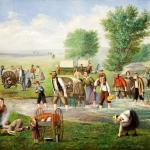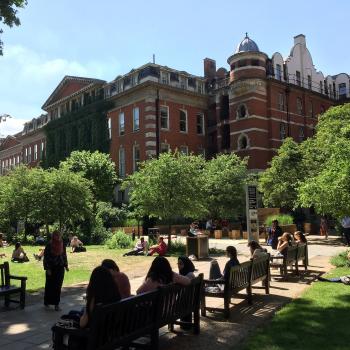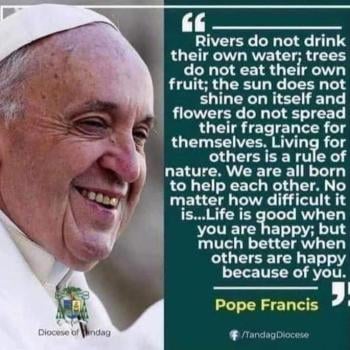A new very short video that features retired federal judge Paul Warner has now been posted by the Interpreter Foundation. Drawn from the Interpreter Foundation’s 2022 docudrama Undaunted: Witnesses of the Book of Mormon, it is entitled “They Never Denied Their Testimonies.”
If you enjoy it, I hope that you will share it further.
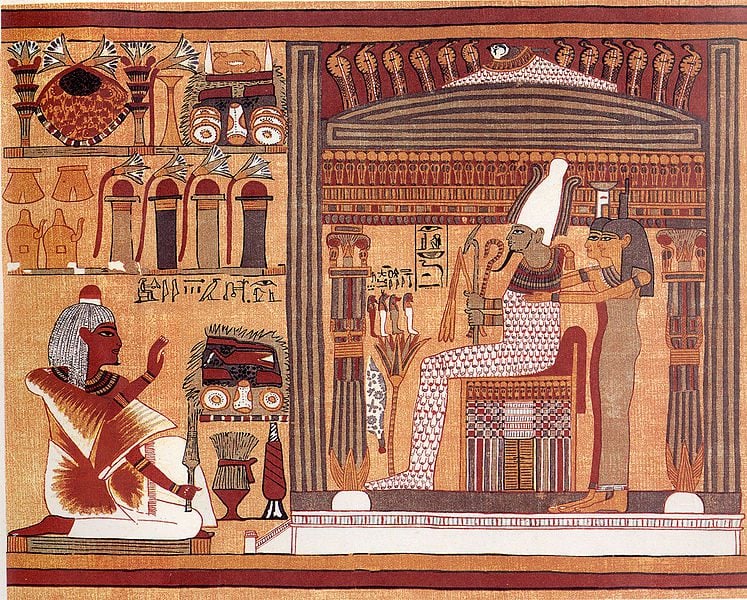
I’ve been slowly reading through Robert Christopher Coppes, Impressions of Near-Death Experiences: Quotations from Over 100 Experiencers (Durham, NC: International Association for Near-Death Studies, 2023). Dr. Coppes, a Dutch researcher, has compiled a great many quotations from the accounts of other people, both published and unpublished, and arranged them by themes or categories. Here is his introductory summation of the famous NDE “life review” for a chapter that is dedicated to that topic.
I found it quite clear, but also worthy of reflection. We will all, it seems, experience a life review. What do we want it to be like? How do we want it to go? It’s not, it seems, entirely out of our control:
During their NDEs, some people have a life review, and frequently this occurs in the presence of the Light. A life review comes in many forms. Some experiencers see their life as a film in fast-forward mode. Some see flashes or pictures. Some feel that these are memories of events. The overall feeling is described as “this is you.” The smallest details are perfectly clear.
The life review is a refresher. NDErs say that they’ve got to remember their place in the grand universal scheme and the purpose that they had on Earth — or, rather, that they still have, considering that all NDErs have returned to continue their earthly lives.
The life review also refreshed experiencers’ memories in another way: It enabled them to be conscious of virtually all events of their lives and of the effect they had on others. This consciousness came in a very interesting way: They remembered these events not only as themselves but also as actually being the other people involved. In other words, they saw their own lives from both their own point of view and also from the viewpoint of everyone else. For instance, when they did something nice for someone else, they actually felt that person’s happiness. This was not an experience of “as if they were the other person” but of “they actually were the other person.” Likewise, when they harmed someone else, they felt that person’s pain as that other person.
One woman once shared her candy with a school friend. It was right after World War II in the Netherlands, and candy back then was a rare luxury. During her life review, she felt the gratitude and happiness of her friend. Being her friend, she felt how thrilled her friend was to be considered worthy enough to receive that candy. She was surprised that the feeling of extreme happiness didn’t stop with the friend but extended to everyone with whom the friend subsequently interacted, such as the friend’s mother and, to her amazement, even beyond. In a very strange way, she felt that her kind gesture rippled further, to places she could not have previously imagined. (87-88)

(Wikimedia Commons public domain photo by Louis Arevalo)
I briefly alluded in a blog entry two days ago to the recent article in The Times (of London) about Hannah Neeleman and Ballerina Farm. (See “The Church in Recent Media.”) Here are two more articles on the topic, both from the Deseret News, of which I especially like the second:
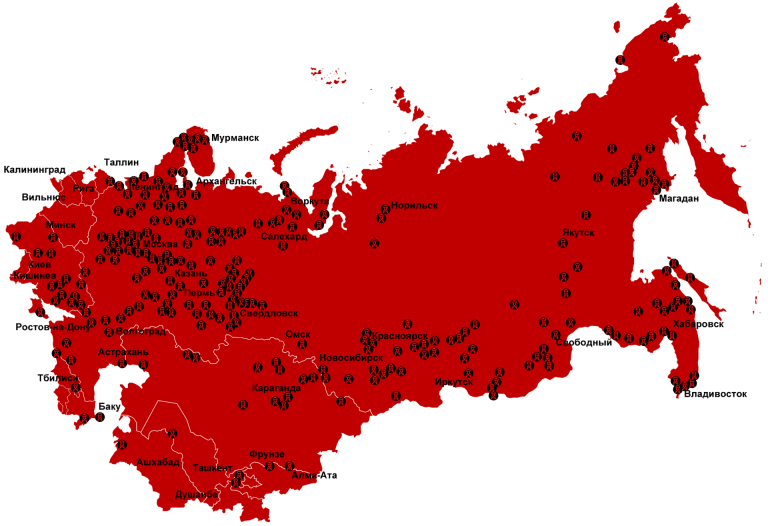
My continuing quest to share materials with you from the Christopher Hitchens Memorial “How Religion Poisons Everything” File™ can, at times, be both daunting and frustrating. Why? Because there’s so much in the Hitchens File, and so much that is added every single day, that I can’t even begin to keep up. (Think of me, in that regard, as something of a martyr, slaving selflessly away for you, dear reader.) In any case, here’s a recent item from the Hitchens File that I’ve retrieved for your pleasurable indignation: “Church Contributes $2 Million to Toronto’s Daily Bread Food Bank: Donation will help thousands of Torontonians facing food insecurity”
Incidentally, there was a complaint over on the Peterson Obsession Board a few weeks ago to the effect that I imagine, quite falsely, that my citing a few (hundred) examples of theism and theists doing good completely refutes all of the late Christopher Hitchens’s arguments against religion.
But I imagine absolutely nothing of the kind. Pointing out examples of how religion often improves things merely refutes his hyperbolic and obviously false claim that “religion poisons everything.” (All that is required to demonstrate that not all crows are black is one white crow. And I’ve furnished far more than a single white crow.) As for the rest of his claims, well, of course, a large majority of them are also false, and I’ve written (but mostly not yet published) quite a number of pages demonstrating their falsehood. My major public foray, thus far, into refuting Mr. Hitchens’s onetime best-selling book god is Not Great came in my 2014 remarks at the annual FAIR conference, which were entitled “God and Mr. Hitchens” or, more accurately and with a nod to his own exotic orthography, “God and mr. hitchens.”
Posted from Depoe Bay, Oregon


